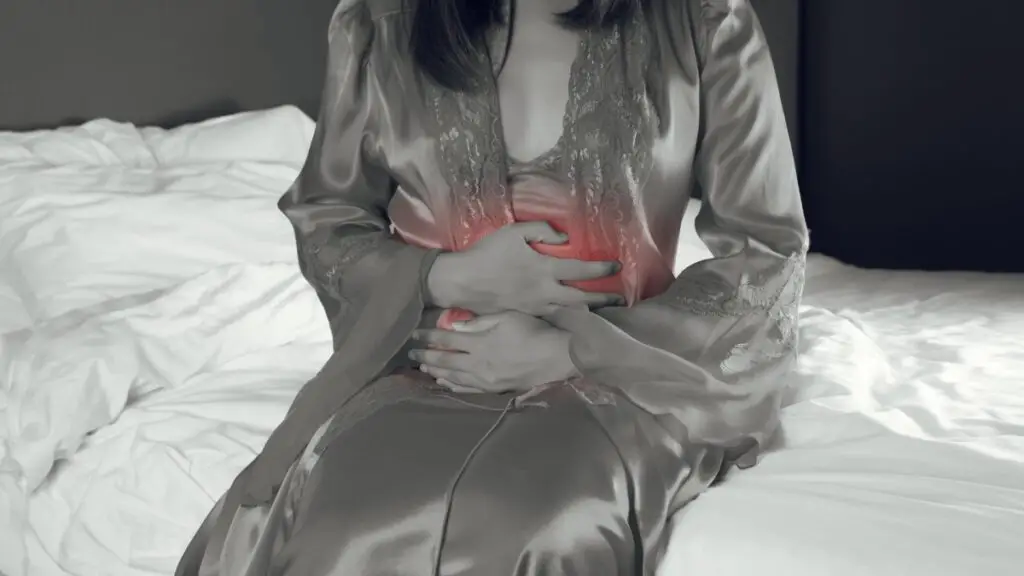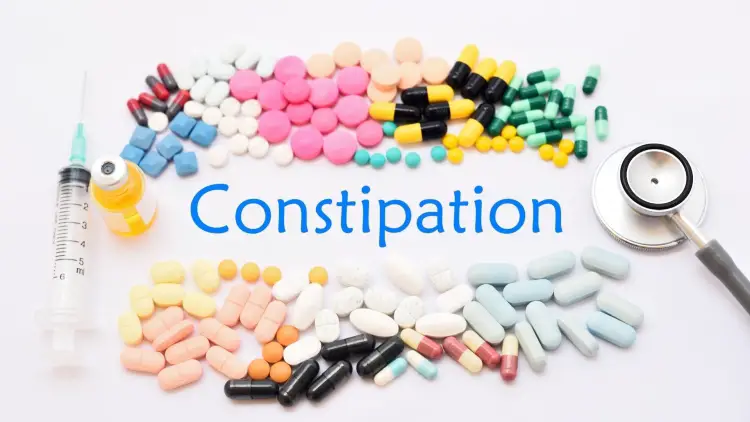Suppose you have been diagnosed with irritable bowel syndrome with constipation (IBS-C), chronic idiopathic constipation (CIC), or opioid-induced constipation (OIC). In that case, your physician might prescribe Linzess to relieve your discomfort. Linzess is dangerous in some instances, however.
You might have questions even after reading the information that comes with your prescription. So let’s take a look at what Linzess is, how it can help, and some frequently asked questions about its use.
What Exactly is Linzess?
Linzess is the brand name for the drug linaclotide used in the United States and Mexico. In other countries, it is branded as Constella. In 2012, linaclotide was approved for sale in Europe and the United States. As of 2017, more than one million prescriptions had been written in the U.S. alone and is available in capsule form in dosages of 72, 145, and 290 micrograms.
Linaclotide is an oligo-peptide agonist rather than a laxative. This means it is a synthetically produced chemical that, once ingested, will activate a specific receptor known as guanylate cyclase 2C in the patient’s gastrointestinal tract. This receptor is the enzyme responsible for causing diarrhea.
Linaclotide has been approved to treat irritable bowel syndrome with constipation (IBS-C) and chronic idiopathic constipation (CIC). Because it targets the diarrhea receptor, it speeds up how fast food moves through your intestines by increasing the fluid found there. It also can reduce the severity of bloating and abdominal pain commonly experienced with GI disorders.
Ways Linzess Can Help
Linzess can help relieve constipation when you have been diagnosed with certain chronic functional gastrointestinal disorders. As mentioned previously, linaclotide has been approved by the FDA for irritable bowel syndrome with constipation (IBS-C) and chronic idiopathic constipation (CIC).
One study suggests that IBS affects about twenty percent of the general population. Another study found that anywhere between five to ten percent of healthy individuals may present with intermittent IBS. This digestive condition affects women more than men and considerably reduces the quality of life experienced by individuals with this condition. In addition, it causes severe abdominal pain, bloating, constipation, and/or diarrhea. There are four IBS classifications: IBS with diarrhea (IBS-D), IBS with constipation (IBS-C), IBS with both constipation and diarrhea, and unclassified IBS.
Linzess is only recommended for IBS-C and then reserved for patients who have not responded to other treatments. For this condition, Linzess is prescribed at 290 mcg per day. This dosage has been shown to provide long-lasting constipation relief, although another study found women with IBS-C given 1000 mcg experienced significantly improved bowel function.
Around fourteen percent of the general population worldwide suffer from the gastrointestinal disorder chronic idiopathic constipation (CIC). The causes of this condition are often unknown. CIC is diagnosed based on its main symptom, infrequent bowel movements, meaning three or fewer per week, over a period of at least six months. Older adults and women are the most affected. Patients who did not see improvement with traditional laxatives found that linaclotide relieved their distress. The recommended daily dosage for CIC is 145 mcg.
Although not FDA approved, Linzess has also shown positive results when used to treat opioid-induced constipation (OIC) as well. OIC is a gastrointestinal condition that results as a side effect of treatment for opioid addiction.
Daily doses of linaclotide of both 145 mcg and 290 mcg resulted in reduced abdominal pain and increased frequency of bowel movements for patients with chronic constipation with mild side effects as compared to a placebo group. Transient constipation resulting from diet changes, stress, neurological conditions, metabolic disorders, or colon cancer can also be treated with low dosages (72 mcg) of Linzess.
4 Ways Linzess is Dangerous
Although Linzess can help reduce constipation, there are some side effects you should be aware of. Some are mild, such as gas and bloating, while others can be fatal.
Intestinal Gas and Flatulence
Because Linzess targets the enzymes of the intestine, it may cause intestinal gas and flatulence. Intestinal gas forms in the digestive system as a normal part of the digestive process. The normally odorless vapors become bad-smelling when these gasses combine with intestinal bacteria.
Therefore, your body will try to release the gas buildup either through your mouth in a burp or through the rectum with a fart. Although not inherently dangerous, intestinal gas can be embarrassing and lead to abdominal pain and bloating, conditions that Linzess is meant to relieve.
Gas buildup that isn’t released can mask more severe health conditions. For example, if gas builds up to the left of your colon, it can cause chest pain that mimics a heart attack. An accumulation of gas on the right might feel like appendicitis or gallstone pain. If you experience any gas pains that could be due to another condition, seek medical attention promptly. It’s better to be safe (and find out it’s just gas) than sorry in this case.
Headache
During clinical trials, a headache was another side effect that occurred often enough to take note of among Linzess users. Interestingly enough, headaches were only reported by participants who were taking Linzess for IBS-C, not those taking it for CIC. Those reporting experiencing headaches described it as throbbing, sharp, or dull pain, either occurring on both sides or just one.
A headache can signal other more severe medical conditions. Headaches can signify severe dehydration, stroke, infection, or brain hemorrhages and should not be dismissed. Contact your physician immediately if you experience a sudden, intense headache with a stiff neck, fainting, nausea, dizziness, tingling, confusion, garbled speech, or facial droopiness. Other sudden onset headaches resulting from serious health problems include those that begin after coughing or sneezing, those that manifest before or after a seizure or are accompanied by facial swelling.
Diarrhea
Unsurprisingly, as Linzess speeds up the digestive process and activates the enzymes that trigger bowel movements, diarrhea was the most common side effect in clinical trials among trial participants who took the medication for CIC and IBS-C, affecting about twenty percent of the trial participants.
Diarrhea associated with linaclotide typically begins within the first two weeks of the onset of treatment with Linzess. A substantial portion of those who experienced diarrhea also reported colon, rectum, and anal bleeding. Diarrhea can cause malabsorption or dehydration.
Severe colon, rectum, and anal bleeding as a result of diarrhea can cause you to feel faint or go into shock. However, if the blood loss is not as drastic, you still can develop anemia and feel short of breath or lethargic, significantly impairing your quality of life.
Poor nutrient absorption can lead to malnutrition and weight loss. The body’s inability to absorb essential nutrients, vitamins, or minerals can have long-lasting repercussions. Women of childbearing age may stop menstruating as the body believes insufficient food is available to carry a child to term.
Protein deficiency can cause edema and hair loss. Iron deficiency results in anemia, causing fatigue and weakness. Malabsorption of fat typically creates light-colored, foul-smelling bowel movements called steatorrhea. If certain sugars are not adequately absorbed during digestion, the result is abdominal bloating, flatulence, and explosive diarrhea. Malabsorption can also impair immune cells and antibody production and activity, leaving the body open to illness.
Because of a weakened immune response and the increased activation of guanylate cyclase 2C in the patient’s gastrointestinal tract, it is more common for individuals taking linaclotide to develop gastroenteritis, an inflammation of the intestine lining, often caused by a bacteria, parasite, or virus. Diarrhea is the highest risk factor for this condition, leading to dehydration.
Signs of dehydration include a rapid heart rate, headache, dark urine, dizziness, confusion, fainting, and nausea. If your body is not given the fluids it needs to function correctly, it will start shutting down. Electrolyte imbalance can cause seizures or heart muscle spasms, causing arrhythmia, which can cause death.
Allergic Reactions
In some instances, Linzess caused mild to severe allergic reactions, so any allergic reaction after taking Linzess should be taken seriously.
Hives were reported along with hive-like swelling and puffiness on some individuals’ hands, legs, sex organs, eyelids, tongue, lips, throat, and feet.
Anaphylaxis is another allergic reaction that, although rare, can not be ruled out. This type of reaction causes your body to go into shock or cause your throat to swell shut. Another type of allergic reaction associated with Linzess is angioedema. This type of reaction causes swelling underneath the skin. Most of the time, it is not dangerous, but occasionally it can affect breathing, becoming life-threatening.
Who Should Not Take Linzess
Children under the age of two should never take Linzess as it could harm their digestive systems or cause dehydration and death. Linaclotide is not approved for anyone younger than 18. Some studies have confirmed that the increased enzymes cause toxicity and cause death among studies of juvenile mice.
Linzess is also not recommended for use during pregnancy since it is likely that a developing fetus would be exposed to the drug, although in animal studies, no congenital disabilities were reported after low dosages were administered. However, there are no studies on higher dosages and fetal development. Although it is not believed that Linzess can be passed to a nursing infant, it is not recommended while breastfeeding.
Anyone with diarrhea, a condition that causes diarrhea such as IBS or intestinal blockage, should not take Linzess.
Linzess FAQs
Here are the answers to a few frequently asked questions about Linzess.
How Do I Make Linzess Work Better?
Linzess should be taken orally once a day at least 30 minutes before your first meal of the day. Do not chew the capsules. If you have difficulty swallowing the capsule, you can break it open and mix the contents with a teaspoon of applesauce.
Can I Take Linzess with Coffee?
You should wait at least 30 minutes after you have taken your capsule before eating or drinking anything. If you drink coffee, be aware that caffeine stimulates your gastrointestinal system, speeding up digestion. If you drink coffee after taking Linzess, you may experience more painful stomach cramping and diarrhea than you would if you drink a non-caffeinated beverage in the morning.
How Long Before Linzess Works?
Linzess can take up to a week before you experience some constipation relief, with a peak of symptom relief over the following 12 weeks.
What Happens if You Take Linezess on a Full Stomach?
Before eating or drinking, you should wait at least 30 minutes after taking a Linezess capsule. If you take your dose with a full stomach, you may experience abdominal cramping and diarrhea.
Is Linzess Safe to Take Every Day?
The FDA has approved Linzess as a daily treatment for irritable bowel syndrome with constipation (IBS-C) and chronic idiopathic constipation (CIC) with a maximum dosage of 290 mcg for up to 18 months.
If you find 290 mcg is causing too many disagreeable side effects, ask your physician about taking a lower dose. If you forget to take the capsule, do not try to take a double dose the next day. Instead, take only your prescribed dosage amount.
Summary
Although approved by the FDA for irritable bowel syndrome with constipation (IBS-C) and chronic idiopathic constipation (CIC) as a way to relieve these two conditions, Linzess is not without dangerous side effects.
Linzess is designed to fast-track your digestive system. It targets the enzyme in your gastrointestinal tract that causes diarrhea. As such, it increases the urgency you need to defecate and can cause fecal incontinence leading to diarrhea.
Diarrhea can be a dangerous complication leading to reduced malnutrition, dehydration, headache, fatigue, and death if left untreated. In clinical trials, diarrhea as a side effect was the most common reason for individuals prescribed Linzess to stop taking it. In some instances, diarrhea led to irritation of the intestinal lining, which resulted in gastroenteritis, hemorrhaging, and bloody stool.
Other individuals prescribed Linzess have had hypersensitive reactions to the medication, including hives, anaphylaxis, and angioedema.
It would be best if you discussed your concerns about taking Linzess with your physician as well as monitor your health yourself. While that headache or rash might not seem like much, it can develop into a serious medical condition if not adequately addressed.






